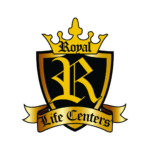There is no overstating how dangerous meth can be, especially when it is being abused. Whether you are preparing for a drug test or are recovering from its effects, knowing how long meth lasts is important for anyone who has experience with this drug.
Understanding how crystal meth can affect you and your loved ones can help you come to terms with your situation and get the treatment you need to recover from meth addiction at Royal Life Centers.
What Is Crystal Meth?
Crystal meth is a common name used to refer to the drug methamphetamine. According to research, methamphetamine is one of the powerful stimulants of the central nervous system (CNS). For this reason, meth is a highly addictive substance that triggers the release of serotonin, dopamine, and norepinephrine in the brain.
Crystal meth is classified as a Schedule II controlled substance by the Drug Enforcement Administration (DEA). As a Schedule II stimulant drug, methamphetamine has a high potential for abuse and is used for medical use under FDA-approved circumstances.
Medical-grade methamphetamine can be used in the treatment of certain conditions such as attention deficit hyperactivity disorder (ADHD), narcolepsy, and certain cases of obesity. Due to its chemical similarities with the stimulant medication amphetamine, prescription meth is able to treat these disorders by increasing the level of dopamine and norepinephrine in the brain. While prescription methamphetamine is a safer, regulated version of street meth, the drug still poses a potential risk of abuse and addiction.
On the other hand, the street version of crystal meth is not regulated — varying in purity, chemical ingredients, and concentration from one batch to the next.
Is Crystal Meth Dangerous?
The crystal meth sold by drug dealers is highly concentrated and dangerous. This is because it is produced with unregulated methods and substances often contain a variety of toxic ingredients.
The toxic chemicals in crystal meth can cause serious health risks, including:
- Paranoia
- Hallucinations
- Irritability
- Violence
- Heart attack
- Stroke
- Addiction
- Death
The level of toxicity often depends on where the crystal meth is made and what chemicals are available at the time of its production. In most cases, illegal forms of methamphetamine are brought into the U.S. by Mexican drug trafficking cartels. However, there are some domestic illicit laboratories that also produce and distribute meth, although typically on a much smaller scale.
What Does Crystal Meth Look Like?
Methamphetamine can take on many forms, so it is important to know how to recognize and differentiate between each of them. Regular meth can most commonly be found as a pill or powder, while crystal meth typically resembles glass fragments or blue-white “rocks” that can come in A variety of sizes.
Depending on its form, meth can be consumed orally or through smoking or injecting it. No matter what form it comes in or how it is used, this drug is extremely dangerous and can have serious consequences both in the short and long term.
As of 2021, around 2.5 million U.S. citizens ages 12 and over have reported using methamphetamine. In that same year, over 32,000 people died from overdoses related to psychostimulants like crystal meth.
How Long Does Meth Last?
If you are wondering “How long does meth last,” the duration of meth’s effects can vary based on several factors, including how much is taken, how it is taken, and what form is used. Smoking or injecting crystal methamphetamine will usually result in a faster and more intense high as it gains immediate access to the bloodstream.
Orally ingesting meth, however, requires the drug to pass through the digestive system, so it can take longer for the effects to take hold and will likely result in a less intense but more prolonged high.
Some people may experience the effects of meth for around six to eight hours, although some studies have suggested that this high can last up to 24 hours in rare cases. This unpredictability makes meth even more dangerous, as it is easier to overdose on a drug when you do not have a reliable way of gauging how long it will stay in your system.
Crystal meth is often considered to be more potent and dangerous than regular methamphetamine, as it is often processed with other dangerous substances and chemicals. With that being said, there is no safe method or form of meth use.
How Long Does Meth Stay In Your System?
If you are struggling with meth abuse, it can be important to know how long meth will remain in your system after use. This can help prevent you from taking too much of the drug too quickly and potentially causing an overdose.
Of course, the length of time that meth stays in your system can vary depending on a number of factors, including:
- The amount of meth you use
- How often do you use meth
- Your metabolism
- Your body fat percentage
- Your hydration levels
- Whether you take any other drugs
In general, meth can be detected in urine tests for up to 3 days after use, in blood tests for up to 12 hours, and in saliva tests for up to 24 hours. However, it can be detected in hair follicle tests for up to 90 days after use, so it can be difficult to fool a drug test when using this substance.
What Are the Signs of Crystal Meth Abuse?
If you have started looking into how long meth stays in your system, it is probably safe to assume that your use of this drug has become problematic. While it can be scary to admit that you may be struggling with addiction, meth can have serious consequences.
Coming to terms with your substance abuse can help put you on the path of getting the help you need to start living a meth-free life. Some of the most common signs of meth addiction include:
- Changes in mood, such as increased anxiety, paranoia, and aggression. You may also be more irritable and easily angered.
- Changes in appearance, such as extreme weight loss, skin problems, poor self-care, and tooth decay (commonly referred to as “meth mouth”).
- Loss of interest in activities that used to be enjoyable and becoming withdrawn from your friends and family.
- Having a compulsive need to use the drug, even when you know it has become harmful to yourself and others.
If you recognize any of these physical and psychological signs in yourself or a loved one, it is important to know that you can recover. Meth addiction is a serious disease, but with the right support and treatment, it is possible to recover from this condition.
What Is Meth Rehab Like?
When recovering from meth addiction, this will require a comprehensive treatment approach that is capable of addressing every aspect of this substance abuse.
Typically, the meth treatment process includes three main services:
- Detoxification
- Counseling
- Therapy
Meth Detox
Detoxification is the process of removing the drug from the body and should be done in a medically supervised setting, such as with Royal Life Centers. Meth detox can be uncomfortable and may include symptoms such as fatigue, anxiety, and depression.
To help you detox from meth, treatment programs often provide comfort medications to help manage any withdrawal symptoms and side effects that occur. These medications may range from over-the-counter pain relievers to prescription medications to assist with energy, sleep, and emotional stability.
Drug Addiction Counseling
Drug addiction counseling is a crucial part of the recovery from meth addiction. This will help you learn more about why you started using meth and how to make healthier decisions in the future.
As you develop a deeper understanding of the underlying causes of your meth addiction, counselors work with you to develop coping mechanisms for dealing with cravings and triggers. This can include individual counseling, group therapy, and family sessions, depending on your specific concerns and recovery needs.
Behavioral Therapy
Behavioral therapy helps you learn how to manage your emotions, improve your self-esteem, and develop healthy relationships. Our therapists utilize evidence-based therapies, such as cognitive behavioral therapy (CBT), dialectical behavior therapy (DBT), motivational interviewing (MI), and holistic therapies.
In doing so, our behavioral therapists work to help you learn how to manage cravings, develop healthy coping skills, and address any underlying mental health issues. You can also benefit from support groups that provide a safe space for people in recovery to connect and share their stories.
Meth Treatment at Royal Life Centers
Methamphetamine addiction is a serious issue that requires intensive medical and psychological care in order to effectively address both the physical and mental effects of prolonged abuse. For this reason, It is important for those struggling with meth addiction to seek professional assistance from addiction specialists who understand the complexities of substance use disorders.
If you are ready to begin your recovery journey from meth addiction, Royal Life Centers is here to help support you every step of the way. We offer effective and comprehensive substance use disorder treatment to each of our guests in a full continuum of care, including:
- Medical detox program
- Residential independent program
- Partial hospitalization program (PHP)
- Intensive outpatient program (IOP)
- Outpatient program (OP)
- Sober living residence
When starting treatment for meth addiction at Royal Life Centers, guests enter our detox program to ensure their safety as the toxins are cleared from their system. Throughout each level of care, we provide a wide range of evidence-based therapies to help individuals identify triggers, develop healthier coping mechanisms, and build a strong support system. Additionally, we incorporate recovery support groups and holistic treatment services to help individuals struggling with methamphetamine addiction recover from their dependence on the drug.
If you would like to learn more about Royal Life Centers’ treatment programs, you can reach out to us now by calling 877-RECOVERY. Our admissions team is available 24/7 to discuss how you can get started on your path to sobriety today!











